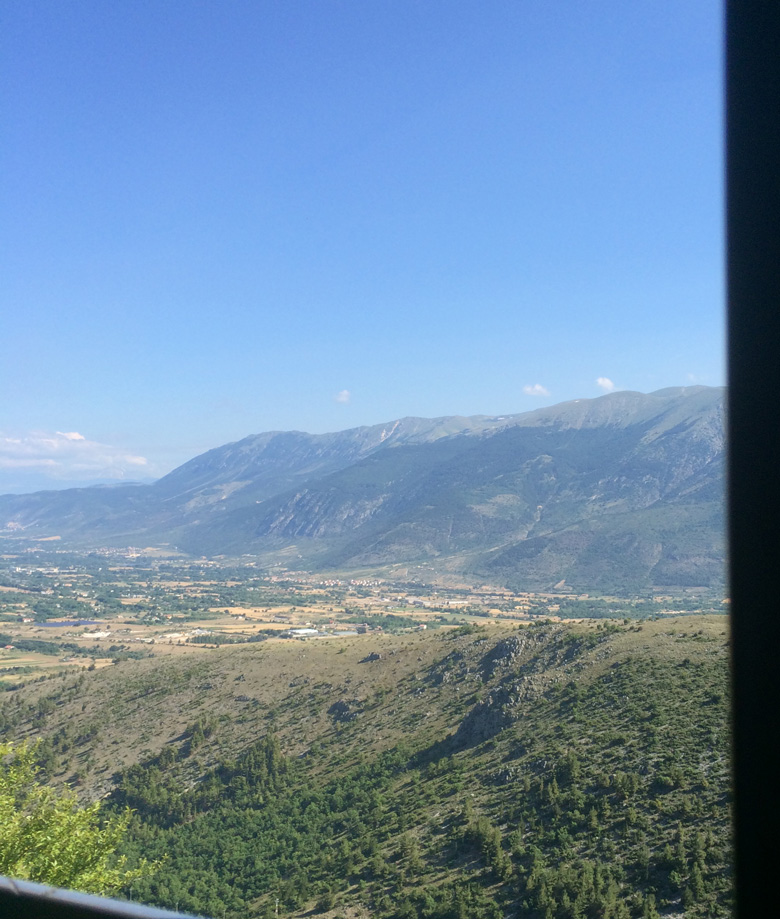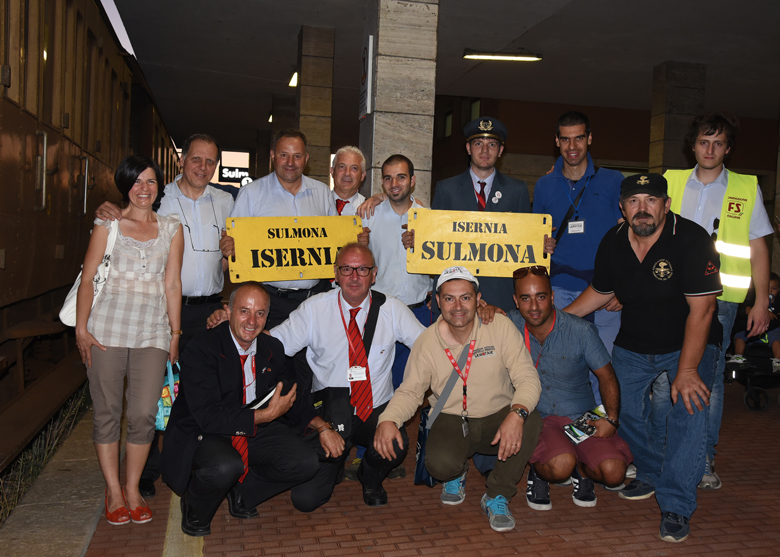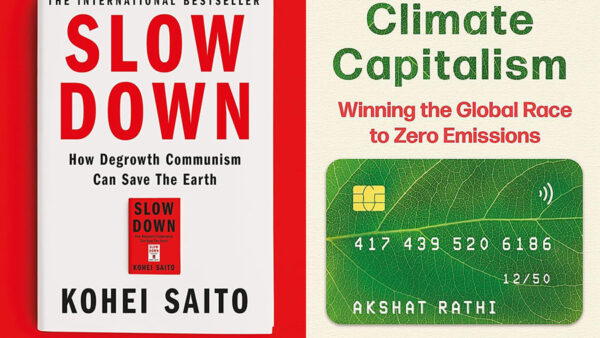The more I see of the world, the more I realise that we’re really quite limited as a species.
In small groups, we can have quite an incredible capacity for doing good. We can be kind, compassionate, friendly, and generally amazing. We can help each other in quite extraordinary ways, even when there’s no benefit to us in doing so. We can motivate ourselves to achieve just about anything, and keep that motivation up through good times and bad.
But in large groups, we often get crazy. We believe lies about other groups being inferior or undeserving, we get scared that they want to take something from us, and we sanction quite horrific acts in the name of keeping us safe. Or, quite simply, we fail to function. The failures and inefficiencies of “big government” activities are well known and ridiculed, but I spent years working in large corporations and found them to be just as dysfunctional, if not more so. Beyond a certain scale, we seem to find ourselves too small and insignificant, and abdicate our responsibility. Everything becomes someone else’s problem, and we focus only on our small area, on what we feel we can control.
The scientific research suggests that there are evolutionary reasons for this. Our brains seem only to be capable of coping with a social group of about 150 people. That’s the size of the average hunter-gatherer group. We’ve also replicated that in other structures since then, such as the size of a company in professional armies, which has remained “remarkably close to a hundred and fifty, from the Roman Empire to sixteenth-century Spain to the twentieth-century Soviet Union.”
This agrees with my own experiences. At 150 or lower, people tend to behave like good human beings, engaged in the activities of the group, helpful towards other members. At higher numbers, they start to disengage. When you get to a corporation with thousands or hundreds of thousands of employees, all is lost.
I saw a perfect example of a small group in action recently on a heritage train ride across the Apennines from Abruzzo to Molise.
Until recently, this line operated a regular service, I believe as part of the route from Naples to Pescara. But what with austerity and all that, it was closed down.
The thing is, I don’t care too much about train lines being closed. I mean, this was a beautiful line through some amazing countryside, with spectacular views of the mountains:

So of course it’s a shame that it was closed. But if the government is being forced by misguided pressure from the EU or IMF to cut costs in the midst of a bleak economy, I’d rather they axe a train line than close libraries or hospitals.
But what impressed me was the commitment of the people who’d formed an organization to preserve the railway, and started running trips for tourists once a month or so. This was a group of people with a clear shared mission, happy and engaged in what they were doing.

They organised a wonderful day, including activities in the town we arrived at (Isernia), the highlight of which was a delicious lunch at a restaurant called Retrogusto (be sure to go there if you’re in the area).
What made the day special was not so much the nostalgia of the old train, or the beautiful views, but the feeling of being part of something. You could feel the enthusiasm of the organisers, with their motto of “Non perdiamo questo treno!” (“Let’s not lose this train!”), and you got swept up in it.
By the end, I felt committed to preserving the Sulmona-Isernia line, not because it was important to me but because it was important to all those wonderful people I met that day. I wanted them to succeed, and to be honest I think they will. They don’t seem to have much funding, and don’t even have a website yet, but they have determination and commitment, and that goes a long way. They’re the perfect example of a small group in action.
What saddens me, though, is that so many of today’s dysfunctional large organisations, from the Labour Party to the Red Cross, started out with just such small, enthusiastic beginnings. At some point, they seem to lose their way, and become more focused on the immediate goals (gaining power / raising money) than their original purpose for existing (helping people).
So where does all that leave us? If we truly cannot function well in groups of more than 150 people, what happens next? To me, it leaves us adrift in large, complex societies, with little hope of being able to manage them effectively. It leaves us extremely vulnerable to things like climate change, problems whose solutions are well known to us, but require large-scale cooperation among a lot more than 150 people.
But on the bright side, we can find these pockets of goodness everywhere, these groups of people cooperating to achieve something important to them, and enjoying themselves and each other at the same time. If you want to experience it, find a group that’s campaigning to keep a library open, or even taking over one that’s already closed. Join a group that’s fighting to preserve a local park, or to achieve some other goal that’s big enough to matter but small enough to be achievable. And if you find yourself in central Italy, join the next train ride across the Apennines from Sulmona to Isernia and experience the warmth at first hand.
And who knows, maybe one day we’ll work out a way to knit these small groups together into something larger, without losing what makes them special. Then we could really achieve something incredible.



There are 14 comments
Can’t agree more ?
Thanks Ashen 🙂 Good to hear from you.
Makes perfect sense! Now to find a solution to encourage a larger number… 🙂
Yes, that’s the challenge, Tracy! Your Facebook page seems to be doing pretty well, even with 2,000+ 🙂
sent you a reply
I know you’re off line for a while but you will be reading it in the end a bit later then
no harm done
Thanks for the email, Rosa-Mari! Enjoyed reading it when I got back.
Fascinating post. Thanks.
Thanks Emma!
An interesting post, Andrew. I agree from my own experiences, having mostly worked in large corporations but having recently moved to a startup. I think some large companies are trying to address this fundamental issue. Like, Google have a rigorous interviewing process with the idea that careful hiring will keep replicating the same model. Some companies insist on people moving groups every few years so that no one can become too complacent. I’ve come to the conclusion that no one cares about large companies – not the career managers, who come in, change things around and leave again, not the people at the top who aren’t even in touch with what’s going on any more and not the people at the bottom, for whom one large company is the same as the next. But in a startup it feels like the continuation of the company is hanging in the balance and you might be able to help make the difference. Maybe that’s the only motivation we need.
Wow, you really hit on it at the end there, Fiona. I think we all just want to make a difference. We need money to survive and look after our families, but it doesn’t really motivate people greatly in my experience. If you don’t feel as if you can make a difference, you tend to give up, and just do the minimum. A very long time ago, I was a corporate banker on a six-figure salary, and felt zero motivation. Working on things I believe in, where I feel I can make a difference, it’s a completely different story. Thanks for the comment 🙂
Fascinating post Andrew. Perhaps the ‘big society’ should be smaller! As you say, the best large organisations mitigate this by grouping people within it. Harry Potter’s world have been less compelling if they were all part of one massive school group instead of living for their identity as Gryffindor or Slytherin.
Every community has issues. The happiest members are often those rallying to address them.
Good point – forming smaller groups within larger organisations is a good tactic. Gives people something to identify with, at a scale they can handle. I like the Harry Potter analogy 🙂
Hi Andrew,
Good post!
Malcolm Gladwell wrote about the 150 people conundrum in The Tipping Point.
Confirms your experiences.
Thanks Cerys! I’ll have to read that 🙂